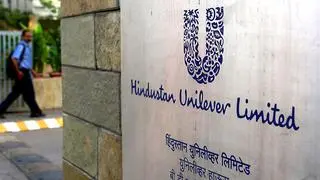Proxy Advisory firm SES, which often pulls up corporates on corporate governance issues, has hit out at Hindustan Unilever (HUL) on the recent royalty hike issue. SES, in a report, has criticised the country’s largest fast moving consumer goods (FMCG) maker for increasing the royalty amount without taking the shareholder’s approval, and that the hike was ‘unjustified.’
HUL, in its recent board meet in January, approved a royalty of 3.15 per cent of turnover effective this month. Till January, the company paid 1.4 per cent of the total turnover as royalty to its parent company, Unilever. The company, however, has planned to increase the royalty from 1.4 per cent to 3.15 per cent in a phased manner till March 2018.
The markets reacted sharply to the news even as brokerages downgraded HUL.
HUL had a Technical Collaboration Agreement (TCA) and a Trade Mark Licence Agreement (TMLA) with Unilever for payment of one per cent royalty on net sales of specific products manufactured with technical inputs developed by Unilever.
Approval process
SES founder J. N. Gupta has questioned the intentions and timing of the royalty hike. He also pointed out that the company had not sought approval from its shareholders before approving the increase in payment.
In his report, Gupta said that under the existing Corporate Governance framework, approval of such transactions from the board of directors only is consistent with the existing regulations, and there is no additional requirement to seek shareholders’ approval. However, such approval process, although perfectly legal, falls short of good Corporate Governance practices, especially keeping in mind the impending changes in the Company law — Companies Act and likely changes in listing agreement based on SEBI’s paper on corporate governance.
“HUL should have kept the proposed law in mind and moved a special resolution at a shareholders meeting, which would have required an approval from 75 per cent of non-interested voting members,” he added.
SES is of the opinion that this may be a case where the promoters are trying to seal the agreement and extract benefits from the company before the stricter regulations kick in, says the report.
The report further added that HUL should have disclosed the details of how the Arm’s Length Price for the agreement was derived at without disclosing the operational details of the agreement. Scope, deliverables, delivery milestones and performance evaluation benchmarks for the support to be provided by Unilever should be disclosed to the shareholders
Sales growth of HUL
While comparing the performance of HUL with its peers, SES said during the last 5 years, sales growth at HUL has not kept pace with the sales growth amongst its peers. Notwithstanding the fact that the size of HUL is much larger compared to many of its peers, the company may be losing its market share due to its slow pace of growth compared to peers.
Therefore, it is not very apparent that the support provided by Unilever PLC Ltd is helping HUL in achieving its marketing and commercial objectives. It should also be noted that peers which do not pay any royalty fee have shown better sales growth than HUL.







Comments
Comments have to be in English, and in full sentences. They cannot be abusive or personal. Please abide by our community guidelines for posting your comments.
We have migrated to a new commenting platform. If you are already a registered user of TheHindu Businessline and logged in, you may continue to engage with our articles. If you do not have an account please register and login to post comments. Users can access their older comments by logging into their accounts on Vuukle.